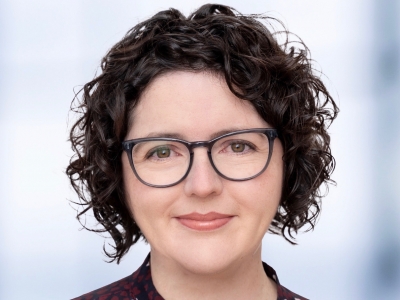Deep Freeze Between Europe and Russia
In March 2014, voters in the Crimea, then part of Ukraine, overwhelmingly voted to secede from Ukraine and join the Russian Federation. Western governments called the vote a sham; Russian President Vladimir Putin responded with a bill to absorb Crimea into Russia.
For many of us in Canada, the events were simply news bulletins from the other side of the world. But for Professor Joan DeBardeleben and her colleagues in the Institute of European, Russian and Eurasian Studies (EURUS), the rising tensions between Russia, Ukraine and the European Union (EU) have been changing their field of study in real time.
Professor Joan DeBardeleben holds a prestigious Jean Monnet Chair for the study of EU relations within EURUS and is the director of the EU-funded Centre for European Studies at Carleton University.
You are currently in Europe, and for your research you have interviewed Russian and European officials and experts about the state of relations between the EU and Russia. What have you learned?
Relations between Russia and the EU are still extremely difficult as a result of the Ukraine crisis, and EU sanctions have recently been extended. Actual implementation of the so-called Minsk II agreement between Ukraine, Russia, France, and Germany seems to be about the only realistic idea on the table for resolving issues between the Ukraine and Russia. However it is not clear whether this approach will actually succeed. At this point there doesn’t seem to be any clear Plan B.
While relations at the top are largely frozen, are the parties still talking with each other?
Yes, there have been contacts. For example, there have been talks between EU, Russian, and Ukrainian officials, which were set up in response to Russia’s concerns about the impact on Russia of a free trade agreement between the EU and Ukraine. However, they haven’t really been successful in resolving disagreements.
EU officials view many Russian objections to the Ukraine-EU free trade agreement as unsubstantiated, whereas Russia sees the EU as unresponsive to its concerns.
What underlies this crisis, and could it have been foreseen?
The rapid deterioration in relations between the EU and Russia was certainly unexpected. Prior to the events in Ukraine in late 2013 and 2014 most experts felt that relations between the two parties had stagnated. Efforts to negotiate a new partnership agreement were largely stalled. However Russia’s strong reaction to the events in Kiev took most analysts by surprise and were seen in the West as a disturbing violation of international law and of Ukraine’s sovereignty.
Underlying all of this were long-standing Russian grievances that its interests were being ignored by the West. Particular sticking points for Russia have been NATO’s eastward expansion, and Western support for Kosovo’s independence. Russian leaders also contest the EU’s claim to define universal European values—such as the rule of law, human rights, and liberal democracy. In Russia, there is a general preference for a stronger state role in the economy and a somewhat different understanding of ‘democracy’. On the other hand, many observers in the West think that Russia has taken an authoritarian turn.
Many of your students will go on to work in government and the Foreign Service. What do you think is important for them to understand about this situation?
It’s important to understand the perspectives of both parties. We often look at things exclusively from the perspective of one side, but we need to understand the motivations behind the actions of other countries as well, with a sensitivity to historical and cultural factors. Otherwise conflicts may spike and it will be difficult to find solutions.
How could your average person better understand the current situation in Europe and Russia?
A key factor involves what happened in Russia in the 1990’s, right after the collapse of the Soviet Union. Conditions set for Western aid were often unresponsive to social issues in Russia. From the viewpoint of the average Russian, it was a time of great turmoil and travail. Many Russians see Vladimir Putin’s approach as one that restores Russia’s pride and its ability to assert itself internationally. At the same time, many Russians are cynical about democracy and see the West, particularly the United States, as applying its values hypocritically around the globe.
With the fall in oil prices and of the ruble, the Russian leadership may realize that economic cooperation with Europe is important, particularly in terms of attracting investment.
This is very much in line with the basic idea that has driven European integration since its origins after World War II, namely that economic interdependence can promote peaceful and stable relations between countries. Let’s hope this dynamic can help restore the good will and trust needed to begin to bridge the current EU-Russia impasse.
Friday, September 9, 2016 in FPA Voices, Institute of European, Russian, and Eurasian Studies, International, People, Policy
Share: Twitter, Facebook



